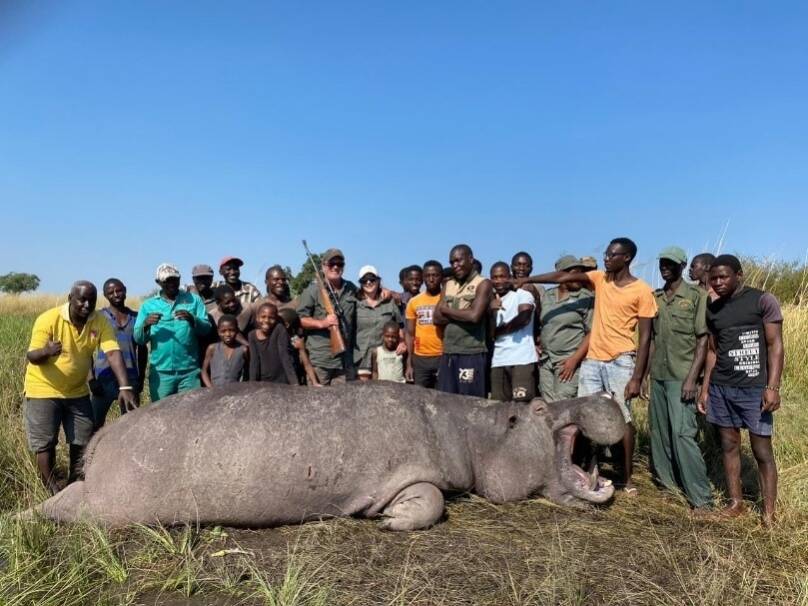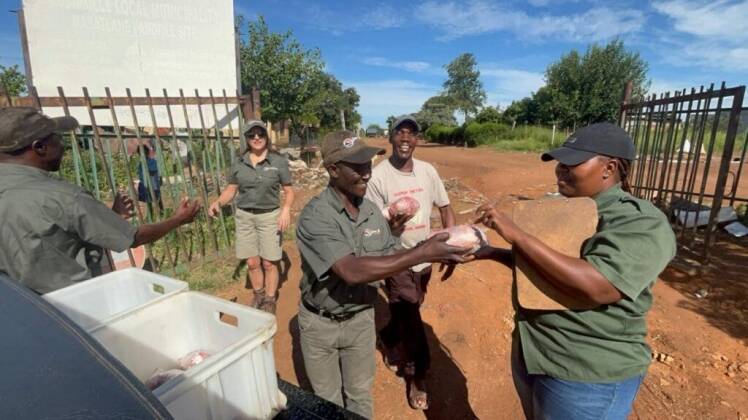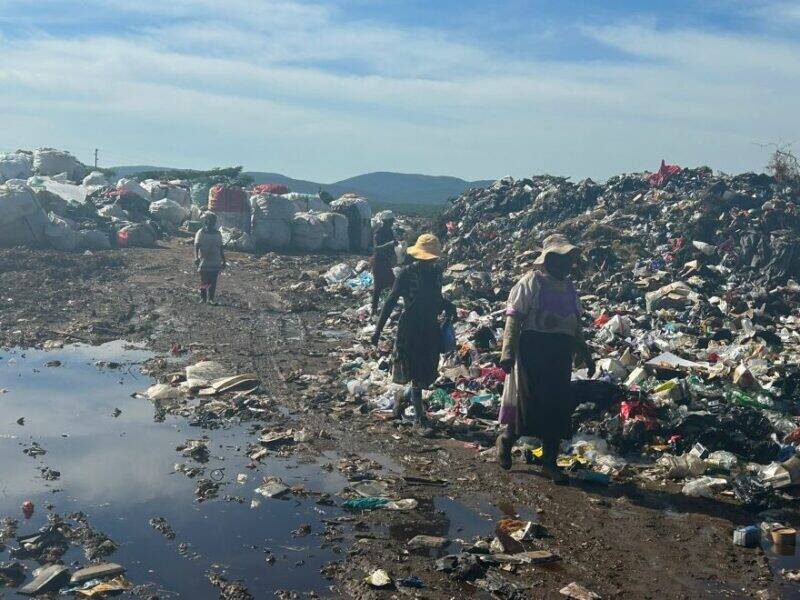A game hunting safari in South Africa has long been a contentious issue, often sparking debates between the “greenies”, animal rights people, and those who support sustainable use. While concerns over wildlife conservation and ethical hunting practices are valid, it’s important to recognize the significant contributions that your hunting safari in South Africa makes to the upliftment of local communities. Hunting, when done responsibly, supports economic development, and conservation efforts, empowers local communities, and promotes sustainable land management practices, ultimately leading to the upliftment of people living in hunting areas.

[DYNAMIC-BLOGTABLEOFCONTENT]
Your hunting safari in South Africa helps local communities
One of the most evident ways your game hunting safari in South Africa contributes to the upliftment of local communities is through economic development. Hunting outfitters in South Africa provide world-class service to international big game hunting enthusiasts, creating employment opportunities, and thereby also contributing to the upliftment of communities. Many locals are employed as skinners, trackers, cooks, cleaners, mechanics, and guides. These positions would not be available if it were not for international big game hunters booking a game hunting safari in South Africa. Unfortunately, not all people are fortunate enough to be employed (even though the hunting industry provides at most around 15,000 jobs).
Sadly, many unemployed people rely on meat donations from international hunters. Recently Game Hunting Safaris donated meat to the local community. Many of these poor people would love to work but have no opportunity and are forced to scratch through other people’s refuse in rubbish dumps, hoping to find something that can be retrieved and sold, like recycling glass, plastic, or metal scrap.

Hunting tourism attracts visitors worldwide, which also boosts the hospitality and tourism sectors in hunting areas. Lodges, guesthouses, and other accommodation facilities cater to hunters and their companions, providing employment opportunities for locals in hospitality, food services, and entertainment. Additionally, hunting tourism creates demand for locally made products and services, like wooden carvings and other curios, further benefiting rural economies.
If it pays it stays
In Africa, there is a well-known saying “If it pays it stays.” Local wildlife has no value without international hunters. Without hunters, land would be taken over by squatters who would put in goats, cattle, and sheep which would ruin natural vegetation and destroy the local wildlife. When you book a hunting safari in South Africa, it encourages adopting sustainable land management practices, as landowners and hunting outfitters in South Africa have a vested interest in maintaining healthy ecosystems and biodiversity. Private game reserves and hunting concessions often implement habitat enhancement projects, such as solar installations, borehole installations, erosion control, invasive species management, and fire management, to optimize wildlife habitat and hunting opportunities.
Contrary to popular belief, responsible hunting plays a vital role in wildlife conservation in South Africa, this means that your hunting safari in South Africa makes a vital difference. In 2000, the Scimitar-horned Oryx was declared extinct in the wild on the IUCN red list. However, due to the demand for them, many outfitters in South Africa have specifically bred these animals and they are available to hunt again. An interesting fact is that the Scimitar-horned Oryx has now been down-listed from extinct in the wild to endangered!
Hunting permits also contribute to conservation funds, which finance various initiatives to preserve habitats, combat poaching, and support wildlife management programs. Hunting helps regulate wildlife populations, preventing overpopulation and associated ecological imbalances. By targeting specific species and individual animals based on scientific quotas and population management plans, hunters aid in maintaining healthy ecosystems and biodiversity. In many cases, hunting revenues directly fund conservation projects that benefit both wildlife and local communities, fostering a symbiotic relationship between conservation and sustainable land use.
Your hunting safari in South Africa empowers and uplifts local communities
In addition to economic benefits and conservation efforts, hunting empowers local communities in South Africa by providing opportunities for participation and ownership in wildlife management initiatives. Community-based conservation models, such as communal conservancies and conservancy agreements, involve residents in decision-making processes regarding land use, resource management, and wildlife conservation.
Most hunting outfitters actively involve local communities by offering:
- Employment opportunities,
- Skills training,
- Capacity-building programs.
By hiring guides, trackers, cooks, and other staff from nearby communities, hunting outfitters in South Africa contribute to poverty alleviation and skills development in rural areas. Local communities also benefit from revenue-sharing agreements, where a portion of hunting proceeds is reinvested in community development projects, such as education, healthcare, and infrastructure.
Your hunting safari in South Africa plays a multifaceted role:
- uplifting local communities,
- contributing to economic development,
- aiding in wildlife conservation,
- empowerment of local communities
- sustainable bush management.
It is essential to recognize how your hunting safari in South Africa has positive impacts on rural economies, conservation efforts, and community well-being. By promoting responsible and sustainable game hunting practices, South Africa can harness the potential of hunting as a tool for community upliftment and conservation, ensuring the coexistence of people and wildlife in harmony with nature.
